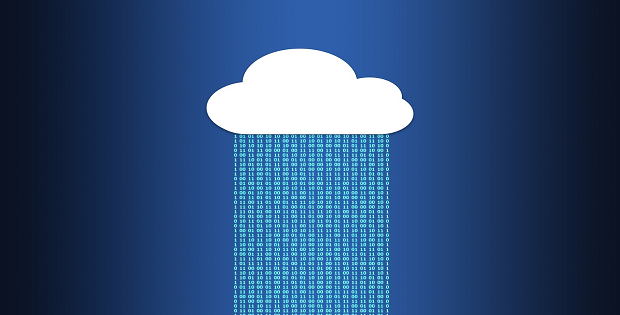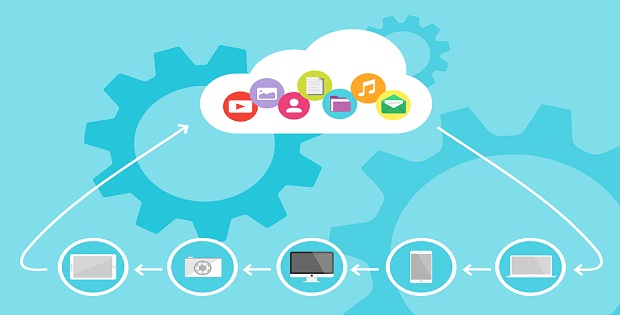What is Cloud Computing With Examples?
Last Updated on 8 months by Touhid
Cloud computing is the latest technology that facilitates the access of applications from anytime anywhere using any device with the connection of internet. In this post, we will discuss on what is cloud computing with examples of various cloud computing.
Cloud Computing is also known as Internet computing which is the delivery of computing services such as servers, database, software, hardware, networks, storage, services and interfaces. Typically, cloud computing data centers could be anywhere in the world. So, you can access the application from anywhere via internet connection.
Table of Contents
What is Cloud Computing with Examples?
What is Cloud Computing with Examples? Cloud computing can be defined as a technology that storing and accessing the applications through internet. It is very important for businesses organizations because it offers efficiency, flexibility, data backup, recovery, maintenance, easy access and a higher level of data security.
In cloud computing system, application or data is stored on virtual servers, which are maintained and controlled by a cloud computing services provider, such as Amazon Web Service (AWS). In cloud computing, you don’t need to buying, installing and maintaining the physical servers, service and networks.
In Cloud Computing, you can access the servers, database, software, hardware, storage and services over the internet with Pay-as-you-go (PAYG) or pay-per-use payment method (Charges based on usage).

Examples of Cloud Computing
What is Examples of Cloud Computing? There are so many example of cloud computing. Nowadays, all of the web applications are being moved to the cloud computing platform and it is increasing day by day. Here are the some popular examples of cloud computing are as follows:
- DropBox
- Google Drive
- YouTube
- Skype
- Gmail
- Amazon Web Services
1. DropBox
A well-known cloud computing example is DropBox, which is one of the most popular cloud storage services. DropBox enable users to store, edit, access and share files on remote cloud servers. The files can be word document, pdf, power point, images and video. And the files can access from anywhere using any device such as your personal computer, your office computer, or your mobile phone.
Your files in Dropbox’s servers are automatically kept up-to-date or synchronized. The Dropbox application is accessible for different operating system such as Windows, Macintosh Linux and mobile devices also.
Learn More about DropBox
2. Google Drive
Google Drive is another example of cloud computing which has developed by Google. It is a free cloud-based storage service that enables users to create, store and share files online. Google Drive can also store any kind of files such as word document, pdf, power point, pictures and video or anything.
The Google Drive’s data center is secured and confidential unless you share with anyone. If your computer or device is lost then you can access your files from other devices also. Typically, it is an online files storage and synchronization service that gives you 15 GB of cloud storage for free.
Learn More about Google Drive
3. YouTube
YouTube is most popular SaaS (Software-as-a-Service) based application which is used worldwide today. The main aim of YouTube is to create and share videos and the videos are posted by people from all over the world. It is a video sharing service that allows users to upload, view, rate, share, comments and downloads the videos which is posted by other peoples.
A user can create a YouTube account and upload his/ her content and makes it a public cloud. The content can be video clips, music videos, documentary, audio recordings, movie trailers, live streams, video blogging and educational videos.

4. Facebook
Facebook is the most popular cloud computing example and world’s largest social networking site which is based on cloud computing. This site itself is a cloud application because user can access his/ her post from anywhere in the world. The Facebook has its own data centers which are managed with a security layer.
Facebook allows users to share different types of content (such as text, images, and videos), like and comments on post and send messages to others users.
5. Skype
Skype is software and VoIP (Voice over Internet Protocol) service which is based on cloud infrastructure. It enables user to send messages, share files, make free audio and video calls to others people using a computer or tablet or mobile device over the internet.
The data are stored on the service provider’s data center but you can access your data from anywhere using internet. Skype is free to download and calls are also free anywhere in the world.
6. Gmail
Gmail is a Software-as-a-Service cloud computing and free Web-based e-mail service which is developed by Google. All the sending and receiving emails are stored in the Google Cloud Platform not hosting your own email server.
7. Amazon Web Services
Amazon Web Services (AWS) is a secured and scalable cloud computing platform provided by Amazon. The Amazon Web Services provides the different types of services such as infrastructure as a service (IaaS), platform as a service (PaaS) and software as a service (SaaS).
It has the dozens of data centers, compute power, data storage, Content delivery network (CDN) to run your web application. The AWS securely store your data files on the cloud server so user can access the files from anytime and anywhere.
Learn More about Amazon Web Services
What is Cloud Computing Deployment Models?
In above, we have defined what is cloud computing with examples of various cloud computing. Now, we will discuss on different types of cloud service models. There are three types of cloud computing models, which are categorized based on the organization’s business requirements.
- Public Cloud Computing
- Private Cloud Computing
- Hybrid Cloud Computing
1. Public Cloud Computing
A public cloud is a type of cloud computing service in which service provider resources are shares by different customers via the internet. Each customer’s applications running in the shared infrastructure although cloud service providers give the complete separation from other cloud customers. A public cloud can be located in the cloud service provider data center and the service is managed by them.
2. Private Cloud Computing
A private cloud is a cloud computing service that doesn’t shares cloud services among different customers, the service is only for an individual customers. The private cloud server is fully isolated from public cloud servers and the cloud infrastructures are dedicated for only one customer.
Typically, this type of cloud servers are usually used by companies which have to store sensitive information. A private cloud can be located in the service provider’s data center or hosted in a customer’s own data center and the server is managed by customer’s or service provider or by a 3rd party.
3. Hybrid Cloud Computing
Hybrid cloud is a cloud computing solution that combines both a private and a public cloud computing which allowing data and applications to be shared between each service. When a company uses a public cloud platform and they need to sends data to a private cloud, in that case company should use hybrid cloud computing.
The Hybrid cloud computing services model give you better control, security, scalability and speed because you can store your sensitive, mission-critical data on a private cloud or own data center and others type of data can store of a managed public cloud.
Cloud Computing Features
Already, we have discussed what is cloud computing with examples and cloud service deployment models. Now, we will mention some features of cloud computing system. There are several features of Cloud Computing system, which are as follows:
- Maintenance is very easy
- On-Demand Self-Service
- Flexibility
- Disaster Recovery
- Application security
- Broad Network Access
- Pay as you go
- No Downtime
1. Maintenance is Very Easy
The maintenance of cloud computing is very simple because the servers, storage and services are easily maintained. In cloud computing, there are technical support team 24/7 to protect your cloud application while it is running.
2. On-Demand Self-Service
In cloud computing services, user can continuously monitor the server up-time, capabilities, manage computing resources, database and allotted storage space.
3. Flexibility
Cloud Services are more flexible. You can extend or reduce your requirements (such as storage) depending on your business demand.
4. Disaster Recovery
Cloud service provider has backup and recovery system to ensure that customer data is protected.
Learn More about Data Security in Cloud Computing
5. Application Security
One of the greatest features of cloud computing is Cloud Security. Cloud enhances the security of an application. The data will never lose even if one of the servers gets damaged. The hacker cannot hack or access the cloud data because data is stored within the storage devices, which maintain the security and reliability.
6. Broad Network Access
The user can access the data of the cloud from anywhere in the world with the help of a computer or mobile device via an internet connection.
7. Pay as You Go
In cloud computing, the customer will pay for the application and website they have hosted on cloud. The cloud service is cost-effective, often provides cheaper costs and also allotted free space.
8. No Downtime
Downtime is cloud computing service’s very important feature. In cloud computing, downtime is very low and even in some cases; there is no downtime, which is called zero downtime. Zero downtime means an application is running without any service interruption.
Cloud Computing Service Provider
Cloud service providers are the companies who offer infrastructure, servers, service, storage and networks accessories. The top Cloud computing service provider companies in the world are as follows:
- Amazon Web Services
- Microsoft Azure
- Google Cloud Platform
- Alibaba Cloud
- IBM Cloud
- VMware
- Cisco Systems
- DigitalOcean
Why cloud computing is used?
Different organizations are using the cloud computing solutions for many cases, such as data backup, disaster recovery, email, software development and testing, and web applications. Here’s a list of key benefits why cloud computing is used:
1. Reduced IT costs
Why cloud computing is used? Cloud computing is used to reduced the cost of IT infrastructure. By using cloud services, you don’t have to invest money in resources such as hardware, software, storage, and network, or building a data center to grow your business. You can reduce your IT costs by using the resources of your cloud computing service provider.
Cloud service provider may be able to reduce your operating costs because:
- You don’t need any hardware, software, storage, and network
- Don’t required to system up gradation
- No need to pay salaries for IT expert
2. Flexibility
It is another reason why cloud computing is used. It provides the more flexibility in your workplace because you don’t need to integrate any physical resources. You can access the resources quickly and easily in real-time through internet connection when a need arises.
3. Scalability
You can scale up or down your business operation according to your demands. If your business demands increase then you can easily increase your cloud capacity.
4. Data security
Data Security is one of the major concerns of cloud services. There are many advanced security features in cloud that guarantee businesses and individuals data is securely stored.
In cloud service, there has a security features called File Cloud, which can guarantee that your data is well protected in your cloud servers.
5. Disaster Recovery
Data loss is another important issue for all business organizations. It is guaranteed that if your data in the cloud then the data is always available and accessible from anywhere.
There are of different ways that data can be loss such as natural disasters, power outages, Software Corruption, Fire accidents and explosions. Cloud services provider has the infrastructure to quick data recovery for all kinds of emergency circumstances.
6. Efficiency
The efficiency of cloud computing system is increase by the savings on capital expenses. By using cloud infrastructure, you don’t have to invest more money in IT infrastructure such as hardware, software, storage, and network. You only pay for the resources are using.
Conclusion
Finally, Cloud Computing has several benefits for both service providers and customers. We have clearly defined what is cloud computing with examples, types of cloud service and features of cloud computing services. Hope the article “what is cloud computing with examples” will be helpful for you.
Affiliate Disclosure : Cyberthreatportal is a participant in the Amazon Services LLC Associates Program, an affiliate advertising program designed to provide a means for website owners to earn advertising fees by advertising and linking to amazon.com.






